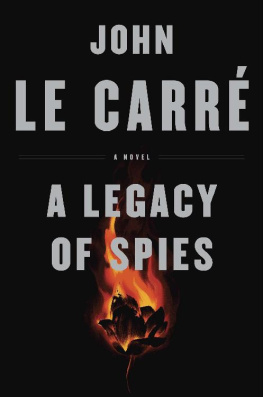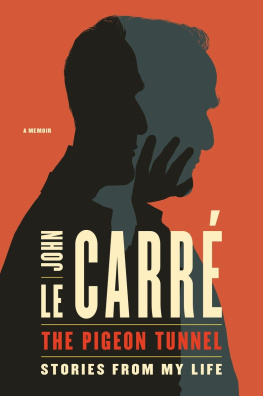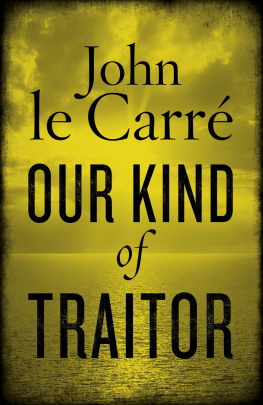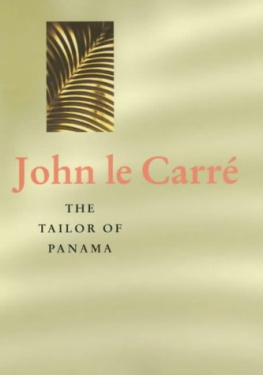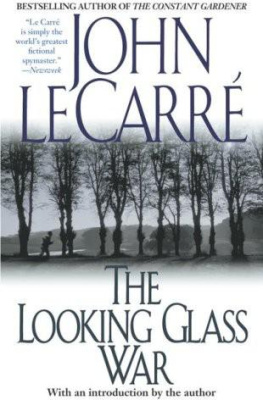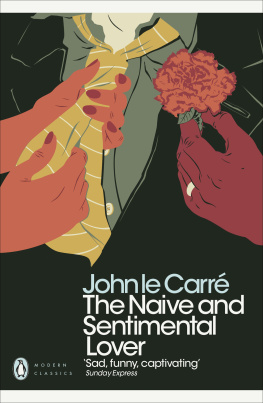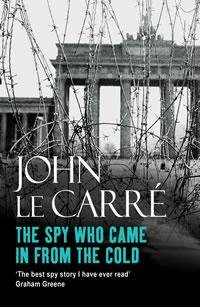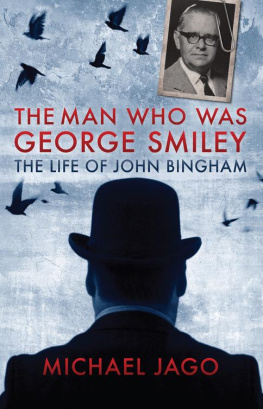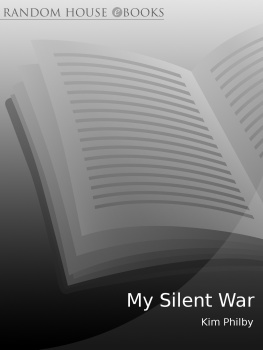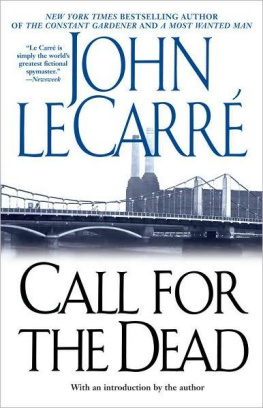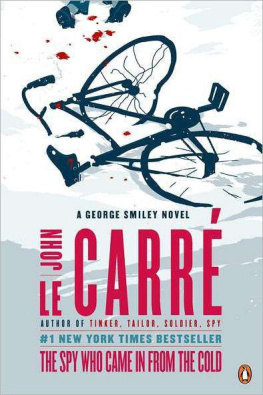Penguin supports copyright. Copyright fuels creativity, encourages diverse voices, promotes free speech, and creates a vibrant culture. Thank you for buying an authorized edition of this book and for complying with copyright laws by not reproducing, scanning, or distributing any part of it in any form without permission. You are supporting writers and allowing Penguin to continue to publish books for every reader.
This is a work of fiction. Names, characters, places, and incidents either are the product of the authors imagination or are used fictitiously, and any resemblance to actual persons, living or dead, businesses, companies, events, or locales is entirely coincidental.
Every man is born as many men and dies as a single one.
1
What follows is a truthful account, as best I am able to provide it, of my role in the British deception operation, codenamed Windfall, that was mounted against the East German Intelligence Service (Stasi) in the late nineteen fifties and early sixties, and resulted in the death of the best British secret agent I ever worked with, and of the innocent woman for whom he gave his life.
A professional intelligence officer is no more immune to human feelings than the rest of mankind. What matters to him is the extent to which he is able to suppress them, whether in real time or, in my case, fifty years on. Until a couple of months ago, lying in bed at night in the remote farmstead in Brittany that is my home, listening to the honk of cattle and the bickering of hens, I resolutely fought off the accusing voices that from time to time attempted to disrupt my sleep. I was too young, I protested, I was too innocent, too naive, too junior. If youre looking for scalps, I told them, go to those grand masters of deception, George Smiley and his master, Control. It was their refined cunning, I insisted, their devious, scholarly intellects, not mine, that delivered the triumph and the anguish that was Windfall. It is only now, having been held to account by the Service to which I devoted the best years of my life, that I am driven in age and bewilderment to set down, at whatever cost, the light and dark sides of my involvement in the affair.
How I came to be recruited to the Secret Intelligence Service in the first place the Circus as we Young Turks called it in those supposedly halcyon days when we were quartered, not in a grotesque fortress beside the River Thames, but in a fustian Victorian pile of red brick, built on the curve of Cambridge Circus remains as much of a mystery to me as do the circumstances of my birth; and the more so since the two events are inseparable.
My father, whose acquaintance I barely remember, was according to my mother the wastrel son of a wealthy Anglo-French family from the English midlands, a man of rash appetites, fast-diminishing inheritance and a redeeming love of France. In the summer of 1930, he was taking the waters in the spa town of Saint-Malo on Brittanys north coast, frequenting the casinos and maisons closes and generally cutting a dash. My mother, sole offspring of a long line of Breton farmers, at that time aged twenty, also happened to be in town, performing the duties of a bridesmaid at the wedding of the daughter of a wealthy cattle auctioneer. Or so she claimed. However, she is a single source, not above a little decoration when the facts were against her, and it would not at all surprise me if she came into town for less upright purposes.
After the ceremony, so her story goes, she and a fellow bridesmaid, the better for a glass or two of champagne, played truant from the reception and, still in their finery, took an evening stroll along the crowded promenade, where my father was also strolling with intent. My mother was pretty and flighty, her friend less so. A whirlwind romance followed. My mother was understandably coy about the pace of it. A second wedding was hastily arranged. I was the product. My father, it appears, was not naturally connubial, and even in the early years of marriage contrived to be more absent than present.
But now the story takes an heroic turn. War, as we know, changes everything, and in a trice it had changed my father. Scarcely had it been declared than he was hammering on the doors of the British War Office, volunteering his services to whoever would have him. His mission, according to my mother, was to save France single-handed. If it was also to escape the ties of family, that is a heresy I was never permitted to utter in my mothers presence. The British had a newly formed Special Operations Executive, famously tasked by Winston Churchill himself with setting Europe ablaze. The coastal towns of south-west Brittany were a hotbed of German submarine activity and our local town of Lorient, a former French naval base, the hottest bed of all. Five times parachuted into the Breton flatlands, my father allied himself with whatever Resistance groups he could find, caused his share of mayhem and died a gruesome death in Rennes prison at the hands of the Gestapo, leaving behind him an example of selfless dedication impossible for any son to match. His other legacy was a misplaced faith in the British public school system, which notwithstanding his dismal performance at his own British public school condemned me to the same fate.
The earliest years of my life had been passed in paradise. My mother cooked and prattled, my grandfather was severe but kindly, the farm prospered. At home we spoke Breton. At the Catholic primary school in our village, a beautiful young nun who had spent six months in Huddersfield as an au pair taught me the rudiments of the English language and, by national decree, French. In the school holidays I ran barefoot in the fields and cliffs around our farmstead, harvested buckwheat for my mothers crpes, tended an old sow called Fadette and played wild games with the children of the village.
The future meant nothing to me until it struck.
At Dover, a plump lady called Murphy, cousin to my late father, detached me from my mothers hand and took me to her house in Ealing. I was eight years old. Through the train window I saw my first barrage balloons. Over supper, Mr Murphy said it would all be over in months and Mrs Murphy said it wouldnt, both of them speaking slowly and repeating themselves for my benefit. The next day Mrs Murphy took me to Selfridges and bought me a school uniform, taking care to keep the receipts. The day after that, she stood on the platform at Paddington station, and wept while I waved goodbye to her with my new school cap.
The Anglicization wished on me by my father needs little elaboration. There was a war on. Schools must put up with what they got. I was no longer Pierre but Peter. My poor English was ridiculed by my comrades, my Breton-accented French by my beleaguered teachers. Our little village of Les Deux Eglises, I was informed almost casually, had been overrun by Germans. My mothers letters arrived, if at all, in brown envelopes with British stamps and London postmarks. It was only years later that I was able to imagine through whose brave hands they must have passed. Holidays were a blur of boys camps and proxy parents. Redbrick preparatory schools turned into granite-grey public schools, but the curriculum stayed the same: the same margarine, the same homilies on patriotism and Empire, the same random violence, careless cruelty and unappeased, unaddressed sexual desire. One spring evening in 1944, shortly before the D-Day landings, the headmaster called me to his study and told me that my father had died a soldiers death, and that I should be proud of him. For security reasons, no further explanation was available.

